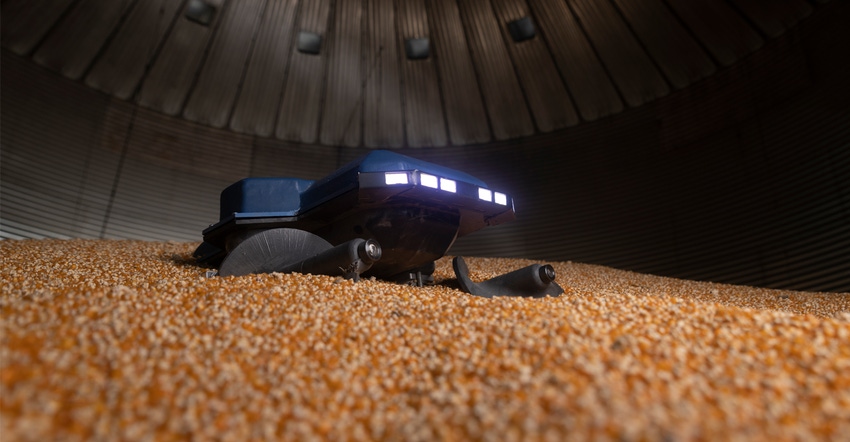
Communication is key. We hear it all the time, but for farmers who are testing new products, systems, machinery and technology on their farms for startup companies or engineering innovators, communication between the producer and the company is truly key to helping engineers and developers tweak their products early in the process.
Farmer feedback can sometimes change the direction of a product, or could help the company tweak small details in its processes to make its product more user-friendly. For the farmers involved, it allows them to be in on the early aspects of the latest in agriculture technology.
As technology in agriculture races forward at breakneck speed, new startup innovations and businesses abound. A farmer panel that included three producers from Nebraska and one from Tennessee spoke at the OnRamp Agriculture Conference earlier this summer.
The conference, aimed at connecting producers and startup companies with investors and stakeholders, was presented by the Nebraska Department of Economic Development; The Combine, a statewide initiative supporting high-growth entrepreneurs in food and agriculture; and gener8tor, a startup accelerator and turnkey platform for connecting founders, investors and corporations.
Keep communicating
Lucas Fricke is the owner of Union Farms near Ulysses, Neb., and founder of ChorCheck Inc., a startup that uses blockchain technology and small data to streamline processes and data collection on the farm. He raises dryland and irrigated row crops, seed corn and swine, so Fricke comes at the startup discussion from both sides.
“One of the biggest things is the communication cycle,” Fricke said during the panel discussion. “I’ve been on both ends of this spectrum — trying to come up with solutions is one of the biggest challenges in field trials. As a startup, you want consistent follow-up and making sure you are on top of your product.”
Companies can’t simply ask a farmer to try out their product without proper follow-up and communication between the two parties on a regular basis.
Fricke said that the great value in trying new innovations on his farm is that it forces the producer to be forward-facing. “We constantly want to do things better, so it forces us to think ahead, and to look at new innovations and constantly change our business model,” he explained. “That way, we don’t get stuck in a rut, and the positive friction helps us change our way of thinking.”
Zach and Brandon Hunnicutt, Giltner, Neb., raise corn, popcorn, soybeans and some organic crops under irrigation. The Hunnicutts helped in the early stages of engineering and development of the Grain Weevil, a robot that assists inside a grain bin on management, so farmers do not have to enter the bin.
“We are early adopters,” Brandon Hunnicutt said. “Our goal is to try to be innovative on whatever is out there in all sorts of technologies. We are always looking for the next thing to see if it works.”
Meeting challenges
Brandon’s brother Zach said that challenges on the farm keep changing. “How do we put something on a sprayer with a 120-foot boom? How do we manage with different pivot applications? How do we implement these ideas on the farm?” he said. “We want to work with companies to figure out how this fits into different farming operations and how we can do things better.”
On the ground level of the Grain Weevil. Zach recalls the day when the company founders, Chad and Ben Johnson, and engineer, Zane Zents, first got the robot to move a few inches inside the Hunnicutt bins, and how exciting that milestone was for them. “It was neat to see our grain bins put to good use to drive robots around and try different things, but the idea all started with a need,” Zach said.
Motivation for innovation
There are several motivations behind new startups in agriculture. “We think about it as economic development to the rural parts of this country, and that is good for all of us,” said Scott Fullen of Mid-South Family Farms in Ripley, Tenn. “We’re concerned about rural America and where it is heading. So, anything we can do to get jobs and get companies to the rural areas is good.”
Innovations also center around efficiency and profitability of producers. “The biggest thing is the sustainability aspect,” Fricke said. “From an environmental standpoint, using less resources also impacts the bottom line and saves money.”
Brandon Hunnicutt says that time is the driver of many innovations. “We’re all busy, farming more acres and raising more livestock,” he said. “Time is valuable, so if these innovations take one person out of the grain bin through robotics, or one less person to go in the field and the robot does something that I don’t have to do, it helps me concentrate on something else. Increase yields, decrease risk and offer more consumer information — these all work together to save time and help increase the farm’s bottom line.”
About the Author(s)
You May Also Like






